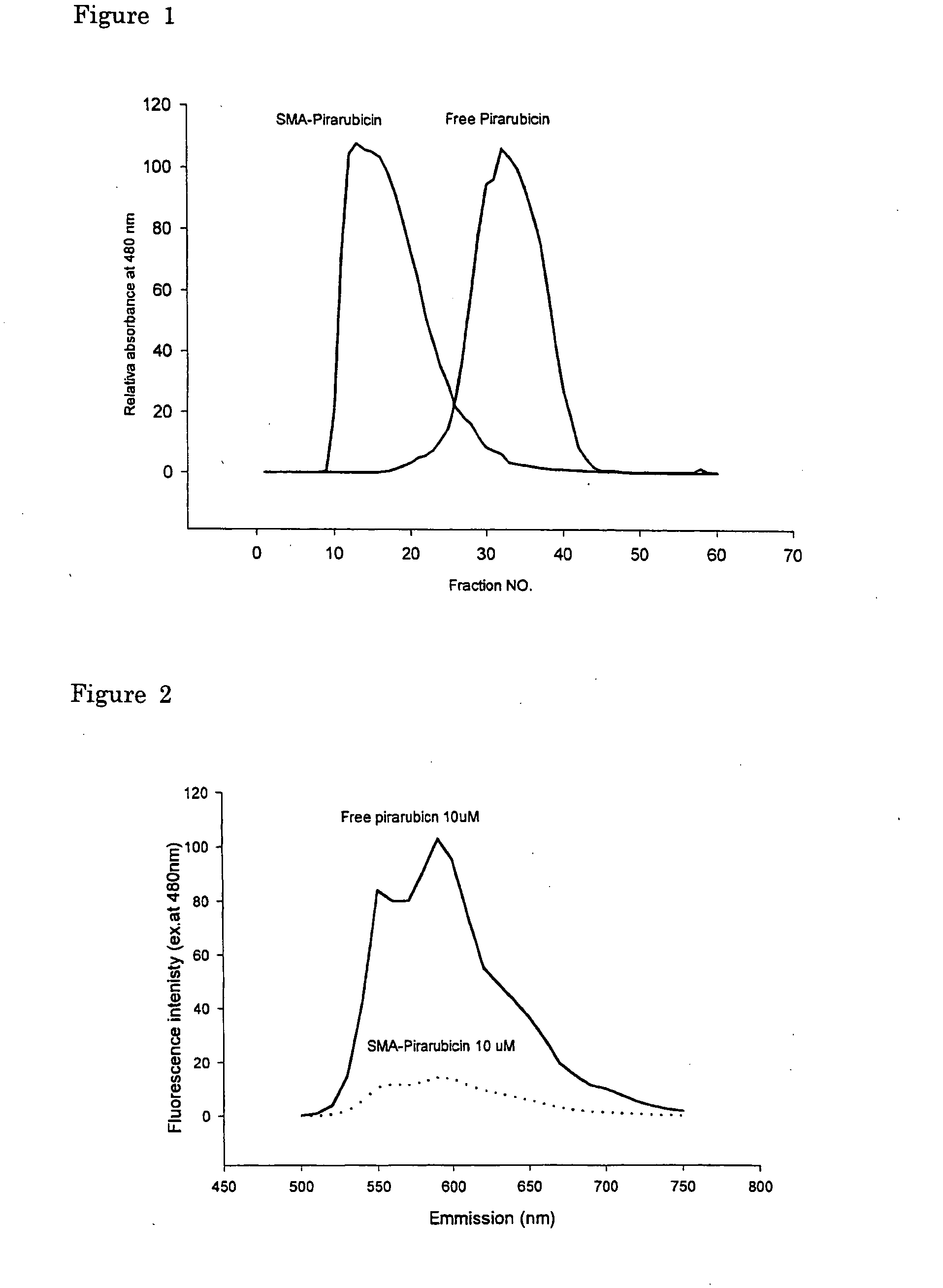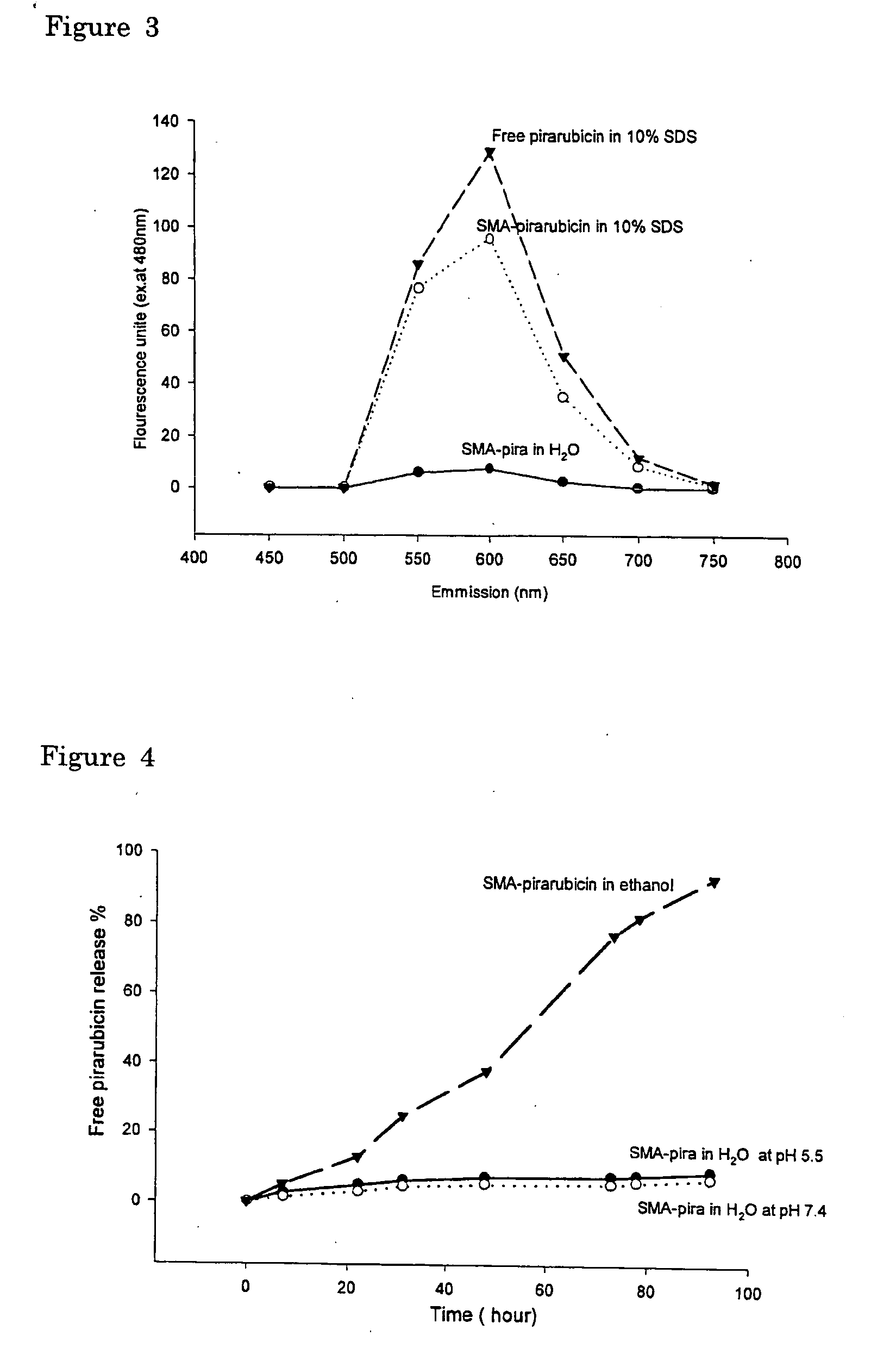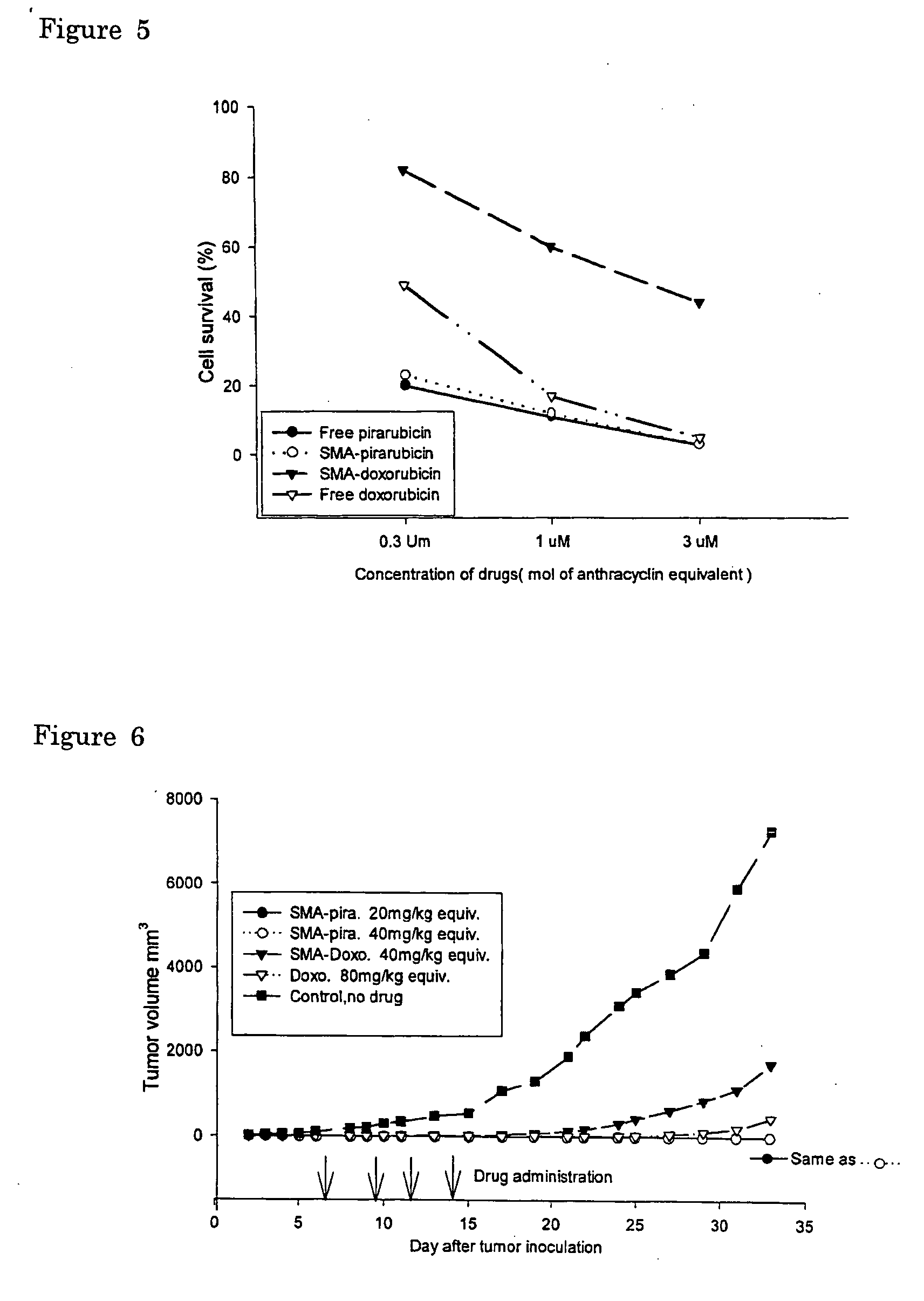Antitumor agent and process for producing the same
- Summary
- Abstract
- Description
- Claims
- Application Information
AI Technical Summary
Benefits of technology
Problems solved by technology
Method used
Image
Examples
example 1
Preparation of SMA Pirarubicin Micelle Complex
[0061] (1) 10 mg / ml of SMA was dissolved in 10 ml water and pH was adjusted to 12 and heating at 50□ for 4 hours to obtain hydrolyzed SMA.
[0062] (2) Pirarubicin at final concentration of 10 mg / ml in H2O (10 ml) was added and mixed by stirring with a magnetic bar in a 100 ml beaker at room temperature.
[0063] (3) pH of the mixture readjusted to 5 under stirring with drop-wise addition of 0.01 M HCl. Ethyl-dimethyl aminopropyl carbodiimid (EDAC), (Sigma Chemical, St. Louis, Mo., USA), was then added at 10 mg / ml (10 ml total / final volume) in 10 aliquots, each addition with 2 minutes intervals and allowed to react for 30 minutes. Colored precipitates will be formed which can be collected by centrifugation or filtration. The yield based on pirarubicin is 99%.
[0064] (4) Precipitates were washed with cold acidic water (pH lower than 5.0) 2 times, and then dissolved in H2O by adjusting pH to 10, then bring down to pH 7. Dialysis with visking ...
example 2
Determination of the Physicochemical and Biochemical Characteristics of the Invention
(1) Gel Chromatography
[0065] Gel filtration chromatography using Sephadex G-50 Fine (Pharmacia LKB, Uppsala, Sweden) was carried out to demonstrate the change in molecular weight after complexing reaction with SMA. The column size used was φ3×52 cm, with 0.25 M sodium hydrogen bicarbonate buffer (pH 8.24) as mobile phase. Each fraction volume was 6.5 ml. As shown in FIG. 1, the molecular size of the SMA-complex showed much larger size compared to both free pirarubicin and free SMA.
(2) Fluorescence Spectrum
[0066] Free or unbound anthracyclin compounds show intense florescence emission spectrum peaked at both 550 nm and 590 nm when excited at 480 nm. This fluorescence is greatly quenched when the molecules is in close interacting vicinity with large polymer such as in micelles, or lipid capsules in the case of liposome due to energy transfer to aromatic residues in the micelle, liposome or lipid...
example 3
[0072] In vitro cytotoxicity of SMA-(doxorubicin or pirarubicin) micelle complex was determined by the method using 3-(4,5-dimethylthiazol-2-yl)-2,5-diphenyltetrazolium bromide (MTT assay) with both human colon cancer SW480 cells and human cervical cancer HeLa cells. They were plated in 96-well culture plates (Falcon, Becton Dickinson Labware, N.J., USA) at a cell density of 3000 cells / well. Cells were cultured overnight in Dulbecco's modified Eagle's medium with 10% fetal calf serum under 95% air and 5% CO2. SW480 and HeLa cells were then incubated in the presence of native doxorubicin, pirarubicin or its SMA-complexes for 72 hours. Cytotoxicity was then quantified as the fraction of surviving cells relative to drug untreated controls (FIG. 5).
[0073] As shown in FIG. 5, SMA-pirarubicin exhibited almost similar cytotoxic effect in vitro to these cell lines when compared to free pirarubicin i.e. 85-100%). Cytotoxic activity of the SMA-doxorubicin micelle were c...
PUM
| Property | Measurement | Unit |
|---|---|---|
| Weight | aaaaa | aaaaa |
| Molecular weight | aaaaa | aaaaa |
Abstract
Description
Claims
Application Information
 Login to View More
Login to View More - R&D
- Intellectual Property
- Life Sciences
- Materials
- Tech Scout
- Unparalleled Data Quality
- Higher Quality Content
- 60% Fewer Hallucinations
Browse by: Latest US Patents, China's latest patents, Technical Efficacy Thesaurus, Application Domain, Technology Topic, Popular Technical Reports.
© 2025 PatSnap. All rights reserved.Legal|Privacy policy|Modern Slavery Act Transparency Statement|Sitemap|About US| Contact US: help@patsnap.com



